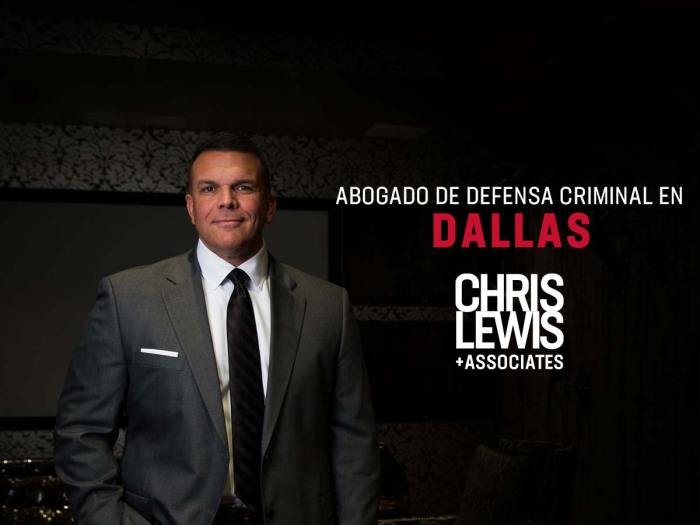abogados de criminal sets the stage for this enthralling narrative, offering readers a glimpse into a story that is rich in detail and brimming with originality from the outset. Criminal lawyers are vital advocates who navigate the complexities of the legal system, representing individuals accused of crimes. Their responsibilities range from providing sound legal counsel to ensuring a robust defense, and they handle cases that can vary from minor infractions to serious felonies, requiring a unique blend of knowledge and skills to effectively defend their clients.
These professionals not only offer legal representation but also play a crucial role in demystifying the criminal justice process for their clients. Understanding the range of services they provide, from pre-trial motions to courtroom advocacy, highlights their importance in safeguarding the rights of the accused. Moreover, their qualifications, often including advanced degrees and specialized training, equip them to tackle the nuances of criminal law with expertise and dedication.
Overview of Criminal Lawyers

Criminal lawyers play a crucial role in the justice system, defending individuals accused of crimes and ensuring their rights are protected throughout the legal process. These legal professionals navigate complex legal frameworks and advocate for their clients, striving to achieve the best possible outcomes in challenging situations. Their expertise is vital in preserving the integrity of the legal system and upholding the principle of “innocent until proven guilty.”The responsibilities of criminal lawyers encompass a broad range of legal activities.
They provide legal counsel, represent clients in court, negotiate plea deals, and conduct investigations to gather evidence. Furthermore, they prepare legal documents, such as motions and appeals, and offer support during various stages of the criminal process. A deep understanding of criminal law and procedural rules is essential for effective advocacy, allowing lawyers to construct compelling defenses.
Types of Criminal Cases Handled by Lawyers
Criminal lawyers are equipped to handle a variety of cases, each with unique challenges and requirements. The following are some of the primary categories of criminal cases:
- Felony Cases
-These involve serious offenses such as murder, rape, and robbery, which can lead to significant prison time if convictions occur. - Misdemeanor Cases
-Less severe than felonies, these include offenses like petty theft and simple assault, typically resulting in lighter penalties. - White-Collar Crimes
-Crimes committed for financial gain, such as fraud, embezzlement, and insider trading, often require specialized knowledge of financial and business practices. - Drug Offenses
-This category covers a range of crimes related to drug possession, distribution, and manufacturing, with varying legal nuances depending on the substance involved. - Domestic Violence Cases
-These involve allegations of abuse within domestic settings, requiring sensitivity and understanding of family dynamics. - Traffic Violations
-Offenses like DUI (driving under the influence) and reckless driving can have serious legal repercussions and often necessitate legal representation.
Qualifications and Skills Required to Become a Criminal Lawyer
Aspiring criminal lawyers must fulfill specific educational and professional requirements, coupled with essential skills for success in the field. The path typically begins with a bachelor’s degree, followed by enrollment in an accredited law school, which culminates in obtaining a Juris Doctor (JD) degree. Following education, passing the bar exam is mandatory to practice law. Additionally, criminal lawyers benefit from strong analytical and research skills, enabling them to navigate complex case law effectively.
Communication skills are equally important, as lawyers must articulate arguments persuasively in court and negotiate favorable outcomes for their clients.
“A successful criminal lawyer combines legal expertise with a deep understanding of human psychology.”
Other valuable attributes include the ability to think critically under pressure, strong negotiation tactics, and a commitment to ethical practice. Practical experience, often gained through internships or clerkships in criminal law settings, enhances a lawyer’s competence and understanding of courtroom procedures.
Services Offered by Criminal Lawyers
Criminal lawyers play a crucial role in the legal system, providing essential services to individuals accused of crimes. Their expertise and knowledge can significantly impact the outcome of a case, making their services indispensable for anyone facing criminal charges.Criminal defense attorneys offer a range of services designed to protect the rights of their clients and ensure fair treatment under the law.
The importance of having legal representation in criminal cases cannot be overstated, as it can influence the direction and outcome of legal proceedings.
Common Legal Services Provided by Criminal Defense Attorneys
Criminal defense attorneys offer a variety of services tailored to meet the needs of their clients. Understanding these services helps individuals facing charges to recognize the support they can expect.
- Case Evaluation: Lawyers thoroughly assess the details of the case, including evidence and witness statements, to determine the best defense strategy.
- Legal Advice: Attorneys provide guidance on legal rights and options available to clients, ensuring they make informed decisions throughout the process.
- Representation in Court: From arraignment to trial, lawyers represent their clients in all court proceedings, advocating on their behalf.
- Plea Bargaining: Lawyers negotiate with prosecutors to arrive at favorable plea deals that may reduce penalties or charges.
- Investigation: Defense attorneys conduct their own investigations, gathering evidence and interviewing witnesses to build a strong defense.
- Sentencing Advocacy: If a client is convicted, attorneys advocate for fair sentencing, aiming for the most lenient punishments possible.
Importance of Legal Representation in Criminal Cases
The presence of a skilled criminal defense attorney is pivotal in navigating the complexities of the legal system. Legal representation ensures that defendants understand their rights and the implications of their choices.
“An attorney’s expertise can mean the difference between freedom and incarceration.”
Having an attorney provides several advantages, such as:
- Protection of rights during questioning and investigations.
- Expertise in understanding legal procedures, which can be complex and confusing.
- Ability to challenge evidence and seek dismissal of charges when warranted.
Preparation of Clients for Court Proceedings
Criminal lawyers play a vital role in preparing their clients for court. This preparation is essential for effectively navigating the judicial process and achieving a favorable outcome.The process of preparing clients typically involves:
Mock Trials
Lawyers may conduct practice sessions to simulate court proceedings, helping clients understand what to expect.
Witness Preparation
Clients are trained on how to interact with witnesses and understand the significance of their testimonies.
Understanding Court Etiquette
Clients are educated on appropriate courtroom behavior, ensuring they present themselves favorably to the judge and jury.
Communication Strategies
Lawyers help clients articulate their thoughts clearly and confidently, which is critical during testimonies and statements.Through these thorough preparations, criminal lawyers empower their clients to face the court with confidence, ultimately enhancing their chances for a successful outcome.
The Criminal Defense Process: Abogados De Criminal
The criminal defense process is a critical pathway that individuals navigate when facing criminal charges. This intricate journey, marked by various stages, requires the expertise of criminal lawyers who guide clients through each phase. Understanding this process is essential for anyone involved in a criminal case, as it highlights the legal procedures and actions necessary for a robust defense.The criminal defense process typically unfolds in a series of defined steps, from the initial arrest to the final trial.
Each step is governed by specific legal principles and rights afforded to the accused. The following sections will Artikel these steps in detail, providing insights into the deliberate and methodical nature of criminal defense.
Steps in a Typical Criminal Defense Case
The criminal defense process involves several key stages that are crucial for a comprehensive defense strategy. Below are the main steps involved:
1. Arrest
The process begins with the arrest of the individual, typically based on probable cause that a crime has been committed.
2. Initial Appearance
Shortly after arrest, the accused will make an initial appearance in court, where they are informed of the charges against them.
3. Bail Hearing
A bail hearing may follow, allowing the court to determine whether the accused will be released pending trial and under what conditions.
4. Preliminary Hearing/Grand Jury
In some cases, a preliminary hearing or grand jury may be convened to assess whether there is enough evidence to proceed to trial.
5. Arraignment
The accused formally enters a plea (guilty, not guilty, or no contest) at the arraignment stage.
6. Discovery
Both the defense and prosecution exchange evidence and witness information during the discovery phase.
7. Pre-Trial Motions
The defense may file pre-trial motions to challenge evidence or seek dismissal of charges.
8. Trial
If the case proceeds to trial, both sides present their arguments, evidence, and witness testimonies before a judge or jury.
9. Verdict
Following the trial, a verdict is reached, determining the guilt or innocence of the accused.1
0. Sentencing
If found guilty, the accused faces sentencing, where penalties are imposed based on the crime.
Defense Strategies Used by Criminal Lawyers
Criminal lawyers utilize various defense strategies to protect their clients and ensure fair treatment throughout the legal process. Below is a comparison table detailing some common defense strategies employed:
| Defense Strategy | Description | Example |
|---|---|---|
| Alibi | Establishing that the accused was elsewhere when the crime occurred. | Client was at a concert during the time of the alleged offense. |
| Self-Defense | Claiming the act was justified as a means of protecting oneself. | Client fought back against an attacker, resulting in injury. |
| Insanity Defense | Arguing that the accused was not mentally competent at the time of the crime. | Client’s mental health issues led to a lack of understanding of their actions. |
| Entrapment | Claiming that law enforcement induced the individual to commit the crime. | Undercover officer persuaded the client to sell drugs. |
| Constitutional Violations | Demonstrating that the accused’s rights were violated during the arrest or investigation. | Evidence obtained without a warrant or probable cause. |
Each of these strategies plays a pivotal role in shaping the defense case, demonstrating the importance of a skilled criminal lawyer in navigating the complexities of the legal system. Understanding these strategies empowers defendants and enhances their chances of achieving a favorable outcome in their cases.
Ethical Considerations in Criminal Law
Criminal lawyers operate within a framework that emphasizes not only legal expertise but also a high standard of ethical conduct. The responsibilities they hold towards their clients, the legal system, and society at large are paramount in ensuring justice is served. Ethical considerations shape the practice of criminal law and guide attorneys in navigating complex moral dilemmas while representing their clients.It is crucial for criminal lawyers to uphold their ethical responsibilities, which include maintaining client confidentiality, providing competent representation, and avoiding conflicts of interest.
These principles ensure that clients receive fair treatment in the legal system while safeguarding the integrity of the legal profession.
Conflicts of Interest in Criminal Law
Criminal cases often present unique challenges, especially regarding potential conflicts of interest. Such conflicts can arise when a lawyer’s personal interests, relationships, or previous engagements may influence their ability to represent a client effectively. Here are examples of situations that might lead to conflicts of interest in criminal cases:
- Representing multiple defendants in the same case, where the interests of one may conflict with those of another.
- Previous representation of a witness or co-defendant, which could compromise the lawyer’s loyalty to the current client.
- Situations where a lawyer has a financial interest in a related entity or outcome that may affect their judgment on behalf of their client.
Understanding these conflicts is essential for criminal lawyers to ensure they do not compromise their client’s rights or the legal process itself.
Common Ethical Dilemmas Faced by Criminal Attorneys
Criminal attorneys frequently navigate a landscape filled with ethical dilemmas that require careful consideration and judgment. The following list Artikels some of the most common challenges they face:
- Balancing the duty to defend a client vigorously while respecting the court and legal process.
- Deciding whether to disclose client information if it could prevent harm to others.
- Managing personal beliefs or moral objections to a case while fulfilling their professional obligations.
- Determining how to handle evidence obtained through questionable means or in violation of legal protocols.
These dilemmas highlight the critical role that ethical frameworks play in guiding the actions of criminal lawyers, ensuring that they uphold the law while also advocating for their clients’ best interests.
“Ethical practice in criminal law is not just a professional obligation, but a cornerstone of the justice system.”
The Impact of Criminal Law on Society
Criminal law plays a pivotal role in shaping societal norms and values, directly influencing how communities perceive crime, justice, and morality. The legal system not only enforces laws but also sends powerful messages about acceptable behavior, thereby affecting public attitudes and social conduct. As criminal laws evolve, they reflect changing societal values and contribute to the ongoing dialogue about justice and fairness in society.
Influence on Societal Norms and Values
Criminal law serves as a framework for societal expectations. The establishment of laws against specific behaviors, such as theft or violence, delineates what is deemed unacceptable in a community. These laws often reflect the collective moral compass of society, reinforcing the idea that certain actions are harmful and warrant punishment. By codifying these societal norms, criminal law helps instill a sense of order and predictability within communities, ultimately guiding individual behavior.
Effectiveness of Legal Representation, Abogados de criminal
The presence of skilled legal representation has been shown to significantly affect outcomes in criminal cases. Statistics reveal that defendants who engage experienced criminal lawyers are more likely to receive reduced sentences or more favorable plea deals. For example, a study conducted by the Bureau of Justice Statistics found that individuals represented by counsel were more likely to avoid incarceration than those who opted for self-representation.
This highlights the critical role that legal expertise plays in navigating the complexities of the criminal justice system.
Role of Criminal Lawyers in Justice Reform
Criminal lawyers not only defend clients but also act as advocates for broader justice reform. Their insights into systemic issues within the legal framework often highlight disparities in treatment and sentencing that affect marginalized communities. Criminal defense attorneys frequently engage in initiatives aiming to reform laws, advocate for policy changes, and promote restorative justice practices. Such efforts are crucial in addressing the root causes of crime and fostering a more equitable legal system.
The influence of criminal law extends beyond individual cases; it shapes the societal landscape by establishing norms, influencing perceptions about justice and fairness, and driving necessary reforms. The interconnectedness of law, societal values, and advocacy for change illustrates the profound impact that criminal law has on the fabric of society.



